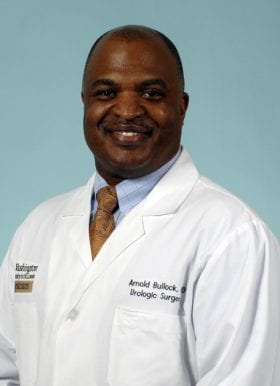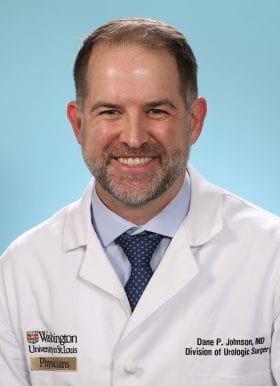
Men’s health topics are important to discuss with a doctor, but for many it is difficult to have these conversations with their health care provider. Washington University urologic surgeons answer questions about vasectomy reversals.
Yes! Vasectomy is meant to be a permanent form of birth control, but can be surgically reversed. Men who have a successful vasectomy reversal are once again capable of achieving pregnancy naturally. Once a vasectomy has been reversed, couples have a pregnancy rate somewhere between 30-70% in the following 1-2 years after surgery. Roughly 5% of men who have had a vasectomy choose to have it reversed.
Most men who have a vasectomy reversal do so in order to regain fertility. Vasectomy reversal may also be an effective treatment for chronic pain after a vasectomy. Roughly 1-2% of men who have a vasectomy experience long-term pain after their procedure. Undergoing vasectomy reversal may reduce this pain for the small percentage of men affected.
During a vasectomy, the vas deferens is severed so that sperm cannot travel from the testicles. Vasectomy reversal is the surgical reconstruction of the vas deferens. By reconnecting this tube, sperm can once again be carried from the testicles.
The most common form of vasectomy reversal is vasovasostomy. This is accomplished by directly suturing the two cut ends of the vas deferens back together. Success rates for this procedure— when performed by an expert microsurgeon— can be as high as 95%.
For men who have had a prior vasectomy reversal and were found to have zero sperm in the ejaculate, there are other options. Some men may consider undergoing a re-do vasectomy reversal. We also offer a procedure called testicular sperm retrieval, in which sperm are taken directly from the testicle. These sperm can then be used for in-vitro fertilization, so that couples still have the opportunity to achieve pregnancy.
After vasectomy reversal, all patients go home the same day. Men typically need prescription-strength pain medicine for a few days after surgery. Pain is typically localized to the incisions, and men who are able to have bilateral vasovasostomy may have a faster recovery. Most men will then continue to have some soreness for a couple of weeks, and may take pain relievers like acetaminophen or ibuprofen. Men who have non-physical work duties may return to work within a week of surgery. We do encourage men to avoid physical exertion like exercise or physical work activities for 2 weeks after surgery.
Men should wait at least 2 weeks after surgery before resuming sexual activity. After a successful vasectomy reversal, couples may be able to achieve pregnancy almost immediately. We will obtain semen analyses at 6, 12 and 24 weeks after surgery to measure the outcomes of the vasovasostomy.
No. Once a man has a proven negative semen analysis, the vasectomy is permanent unless surgically reversed. It is not possible for the vas deferens to re-align or reverse itself.
Washington University Urology can provide options for vasectomy and vasectomy reversals. Meet our specialists below.

Arnold Bullock, MD
Alan A. & Edith L. Wolff Distinguished Professor in Urology
- Phone: 314-362-8200
Division of Urologic Surgery
